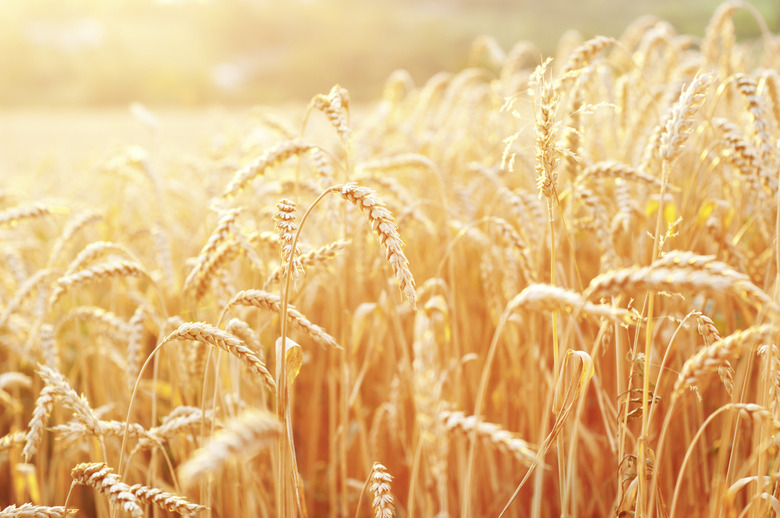Harmful Effects Of The Green Revolution
The Green Revolution program, which began decades ago, had a noble goal — increase the global food supply and reduce world hunger. To accomplish this, farmers started to cultivate land using new farming techniques. These methods worked, crop yields climbed and fewer people experienced hunger. However, Green Revolution farming methods also created a few unwanted side effects — some of which are serious.
Inside the Green Revolution
Inside the Green Revolution
One primary mission of the Green Revolution was to improve the production of wheat and rice — two high-yield plants. The program required farmers to use pesticides to kill pests and fertilizers to give extra nutrients to the plants, to take advantage of efficient irrigation techniques, and to learn new management techniques. Not only did food production increase, but statistics show that the production of maize, wheat and rice almost doubled between the 60s and 90s.
Pesticides: Handle with Care
Pesticides: Handle with Care
Many of the pesticides used during the heady days of the green revolution (60s to 90s) are very toxic to humans and other non-target organisms. Even pesticides advertised as "green," are not necessarily 100% safe. While many pesticides used in organic farming are safer than common chemicals we come into contact with every day, it is important to be careful. The Environmental Protection Agency does not allow companies to use terms such as "green" or "non-toxic" on pesticide labels.
Toxicity of the Green Revolution
Toxicity of the Green Revolution
Four decades after Indian farmers began increasing production using pesticides and fertilizers, they are starting to have second thoughts about the change. In 2008, Researchers at Punjabi University discovered DNA damage in 30 percent of Indian farmers who treated plants with herbicides and pesticides. An additional study found heavy metals and pesticide chemicals in drinking water. These substances are harmful and can cause serious health problems. Some of these problems may occur because some farmers may not know how to handle and dispose of toxic chemicals. They may also harm the environment by using too many of those products.
Loss of Genetic Diversity
Loss of Genetic Diversity
In traditional farming, farmers plant a variety of crops that typically have a large supply of unique genotypes. People using Green Revolution farming methods plant fewer crop varieties in favor of those that produce high yields. This type of cultivation causes an undesirable loss in crop genetic diversity. You can witness this problem in India, where about 75 percent of their rice fields contain only 10 varieties of plants. This is a significant drop compared to the 30,000 rice varieties that were planted 50 years ago. Traditional crops have the highest gene diversity and as they dwindle, those genes vanish. These genetic diversity losses can be seen all over the world in locations that implemented Green Revolution farming methods.
Impacts on Rice Production
Impacts on Rice Production
Rice fields are a vital source of food for individuals around the world. Because these fields often have mineral-rich soil, they are resilient and people have farmed them successfully for centuries. However, after the Green Revolution changed the way people farm, rice field sustainability declined, even though rice yields increased. Causes for the decline include loss of biodiversity and fish deaths due to toxicity from pesticide use.
Other Side Effects
Other Side Effects
Because the Green Revolution required learning new water management skills, some farmers that didn't have these skills could not take full advantage of the new irrigation techniques. The Green Revolution's original mission was to focus on areas with significant rainfall or irrigation. This meant that in drier locations, wheat yield gains often fell below 10 percent, while yields in irrigated areas reached 40 percent. By the mid 80s, locations with high irrigation fully adopted high-yield crop production methods, while areas with little rainfall and a limited water supply experienced low adoption rates.
References
- National Pesticide Information Center: "Natural or Green?" What Does it Mean?
- Oregon State University: Diminished Crop Diversity
- The New York Times: Loss of Genetic Diversity Imperils Crop Advances
- National Center for Biotechnology Information: Agricultural Use of Wetlands: Opportunities and Limitations
- Proceedings of the National Academy of Sciences of the United States of America: Green Revolution: Impacts, Limits, and the Path Ahead
Cite This Article
MLA
Lee, Kevin. "Harmful Effects Of The Green Revolution" sciencing.com, https://www.sciencing.com/harmful-effects-green-revolution-8587115/. 23 April 2018.
APA
Lee, Kevin. (2018, April 23). Harmful Effects Of The Green Revolution. sciencing.com. Retrieved from https://www.sciencing.com/harmful-effects-green-revolution-8587115/
Chicago
Lee, Kevin. Harmful Effects Of The Green Revolution last modified March 24, 2022. https://www.sciencing.com/harmful-effects-green-revolution-8587115/
